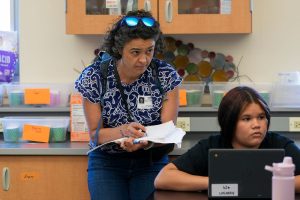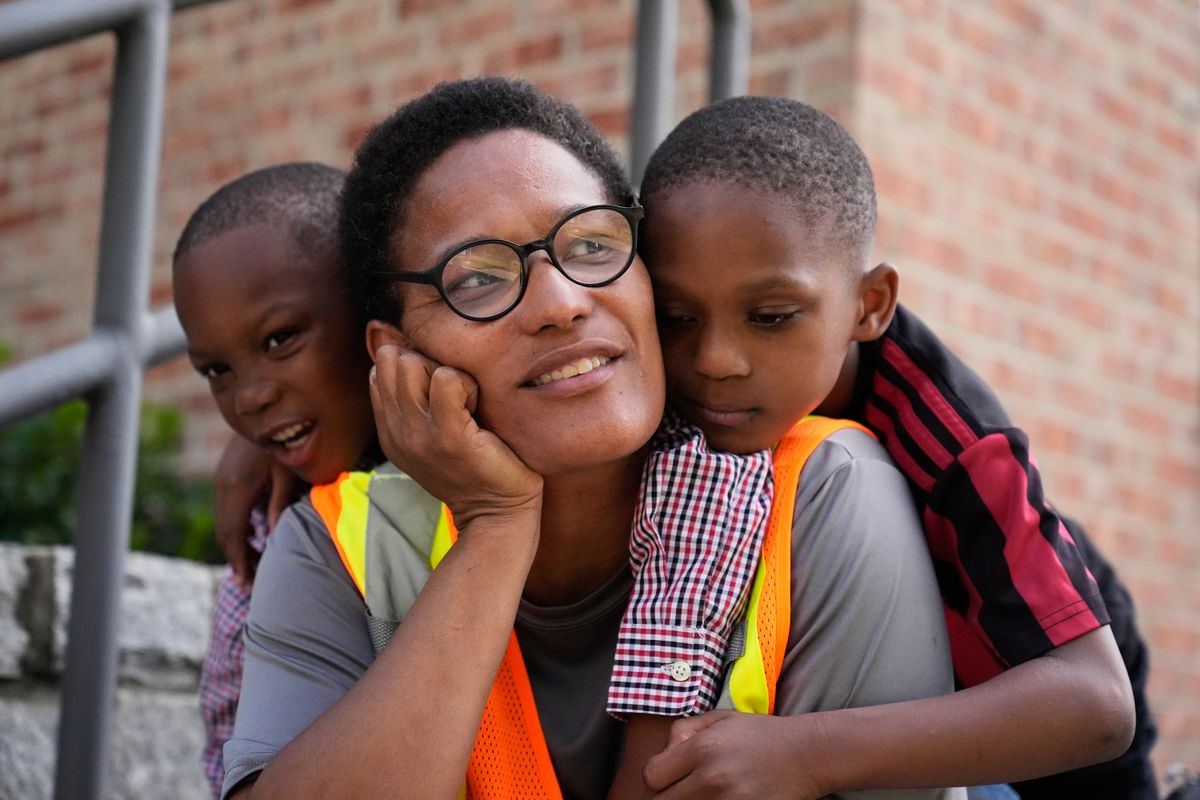ATLANTA (AP) — As an education reporter, I’ve heard teachers worry that the most pernicious challenges their students face, like poverty or housing insecurity, are beyond the realm of what schools can fix.
I wanted to understand better how the rising cost of housing and the prevalence of eviction could undermine a young person’s ability to thrive in school and in life.
Research shows schoolchildren threatened with eviction are more likely to transfer to another school, often one with less funding, more poverty and lower test scores. They’re more likely to miss school, and those who end up transferring are suspended more often.
I’ve seen this firsthand through my own reporting. A few years ago, when I was writing about students who missed school for months or longer, many of them shared a housing disruption had first kept them out of class. They lost their home, ended up staying with a relative, and didn’t get back in school for weeks or longer.
So I called up a parent organizer in Atlanta who had introduced me to other families struggling with that city’s rapid gentrification.
She told me about Sechita McNair, a talkative mother of three trying to move back to Atlanta after an eviction so her kids could stay in their schools.
McNair was one of the easiest people I’ve ever written about because she was a film-industry veteran. She understood my desire to document or understand every step in the process of getting evicted or advocating for her children. I never had to explain why I was asking a question, why I wanted so much detail about where she was when she received a certain phone call, or why I wanted her to send me emails or documents. She’s an open book and sincerely thought others might benefit from reading about her perseverance and resourcefulness.
She also was challenging to write about because her life was extremely complicated. McNair has immense family responsibilities, without support from other relatives, yet she holds a deep belief that things will work out if she just keeps moving. Her situation and plans would change rapidly. Sometimes I struggled to keep up.
I traveled to Atlanta three times over several months to visit McNair, and in between we were in constant touch. I often spoke to her while she drove the kids to and from school or while she picked up orders for Uber Eats. The result is a close-up portrait of life as a single mother trying to swim upstream while carrying three boys on her back.
This is the hardest part: Everything McNair was working toward — getting her kids back into Atlanta — is exactly what researchers would say she should do. She should keep her kids in the same school so they can be in a stable environment.
But so far, it hasn’t been enough.
____
Bianca Vázquez Toness covers the intersection of education and children’s well-being. She led the nation in showing how many students were missing school after the pandemic, and her work was honored as a finalist for the Pulitzer Prize.
____
The Associated Press’ education coverage receives financial support from multiple private foundations. AP is solely responsible for all content. Find AP’s standards for working with philanthropies, a list of supporters and funded coverage areas at AP.org.
By BIANCA VÁZQUEZ TONESS
AP Education Writer


